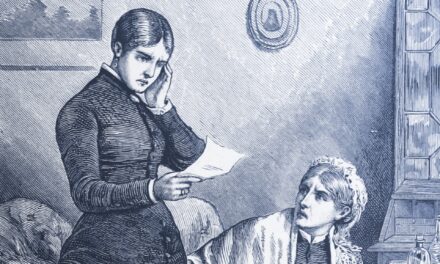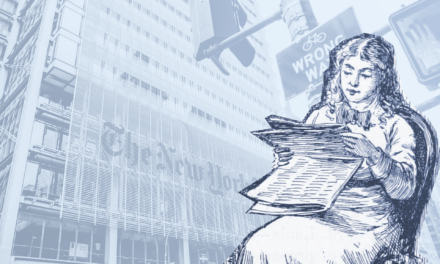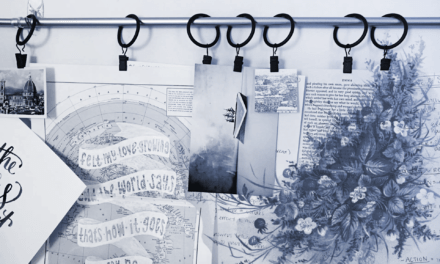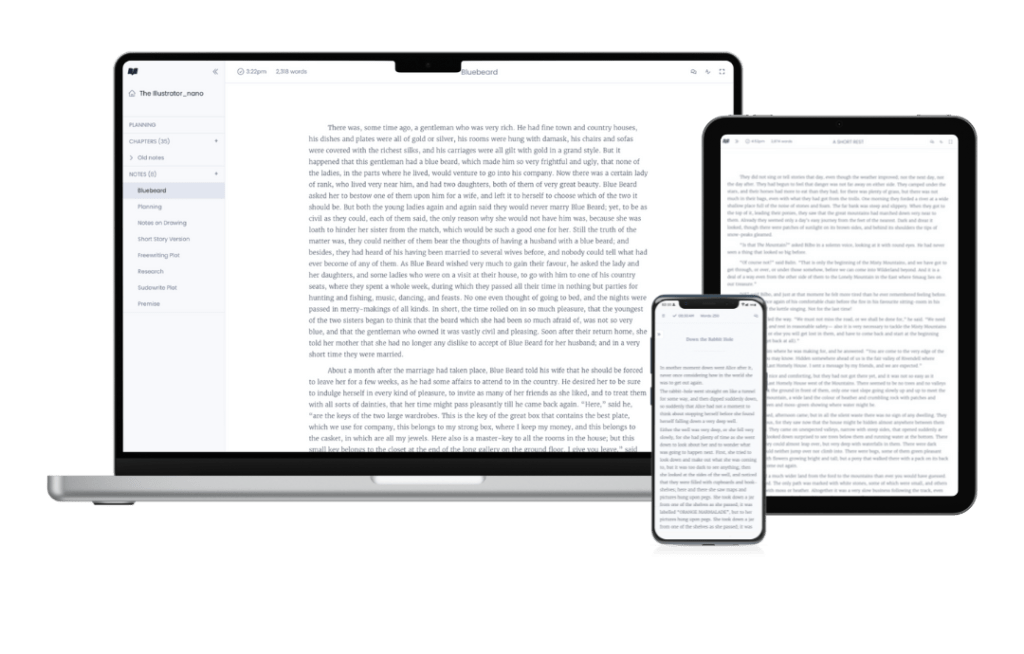
An Unconventional Guide to Self-Promotion from a Self-Published Author

You’ve put in the work and given yourself anxiety about fictional people and places. You’ve worked late into the night because you had a romance scene to work on. You’ve stared at your screen, wine in hand, as you made your edits, and you’ve cried in frustration at the overwhelming task of the self-publication process.
After hundreds of hours and tears of self-doubt, you hold the finished product of your imagination in your hand. You’ve written a book!
But what now?
Now that you don’t have to work on your novel anymore, you must change your mindset and start thinking about sales. It’s time to get serious about self-promotion.
To ensure you’re not left with a big box of unsold book copies, I’m here to share what I’ve learned on my own self-publishing journey.
Always be selling
Talk about your book as much as possible, and don’t be afraid to invite people to read it.
I like to keep a box of at least five copies of my novel in my car at all times. There’s nothing worse than when someone expresses an interest in your work, and you’re caught short.
Readers loved signed copies, but you’ll need a physical copy on hand to give them that. A certain prestige comes with personalization, so being able to capitalize on that at every opportunity is an essential part of a self-published author’s arsenal.
Conversations advocating for my book aren’t always pushy. They usually start subtly. I’ll make an offhanded comment about the fact that I’ve written a book, which is generally met with the response of “Oh, you’re an author?”
This is always a great opening for self-promotion. They’ve essentially invited you to talk about your book, at which point you can let your work speak for itself. Don’t go for the hard sell; just be open and honest about the kind of books you write and what makes them unique. I find a more gentle approach works best, as even if your book might not appeal to the person you’re talking to, if you make a good impression, they’re more likely to mention it to a friend who might be interested.
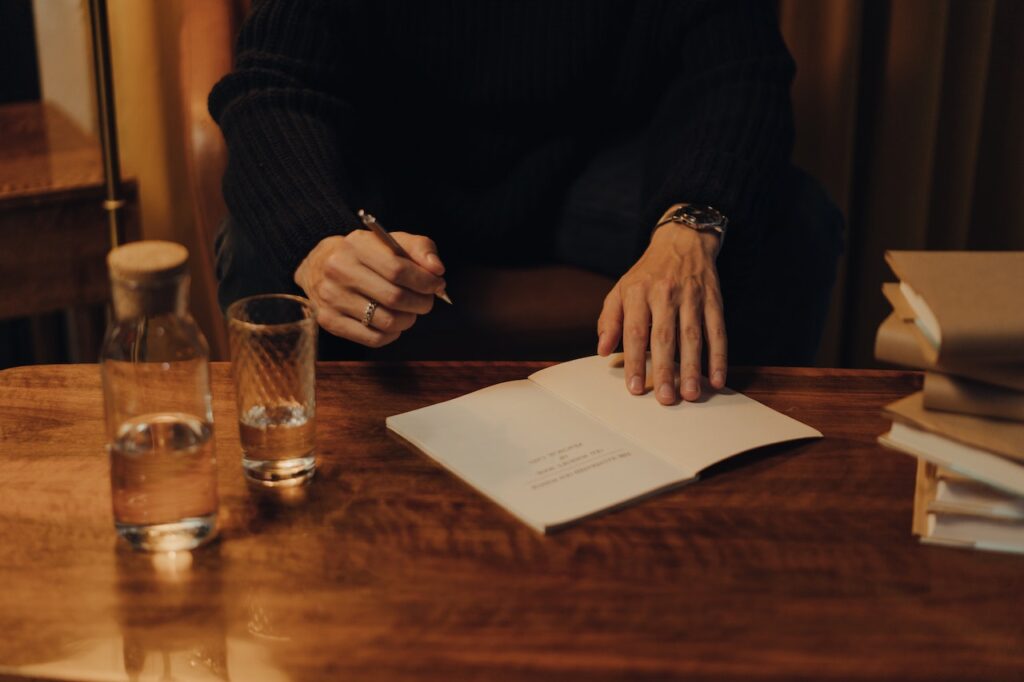
Make it memorable
By keeping copies of my book in my car, I can invite them back to have a look if they’re interested (although prepare for some funny looks from people who see you dealing books out of the trunk of your car at night).
It may seem like a weird thing to do, but if you keep the conversations light, and personalize the experience, then I’ve found that people are generally pretty open to the idea of buying my book. I had one experience with a potential reader who said he didn’t think my work looked like something he’d enjoy as he usually only read Westerns. I drew a cowboy on the cover and told him it was now a Western. He thought that was funny, laughed, appreciated the extra effort, and bought a copy.
Keeping the experience positive and personalizing your interactions makes sure your book is memorable. Even if the person buying it never reads it, you can give them the kind of experience they’ll tell their friends about, thus increasing your exposure. And if buying a book from the back of a car in a parking lot at midnight from a man in black doesn’t make a great story, then I don’t know what does!
The point I’m trying to make is; be prepared. Always be ready and willing to talk about your books, and make it easy for people to not only find, but purchase them. Selling books in a car park might not work for you, but find something that does. Think of ways that you can provide a memorable experience that works to your own strengths and comfort levels.
Give them an experience, make your books accessible, and sign a copy for them. Make it memorable, and they’ll not only remember you, but they’ll also tell their friends about you.
Table-hop at conventions and book fairs
Book fairs, conventions, and local markets can be great ways to sell your books, whether you book your own table, share a table with other indies, or present on panels to talk about your work. But everyone knows about those, and I’ve found a technique that leverages the convention atmosphere without the need to set myself up in a booth.
Rather than sitting for a whole weekend and missing out on the joys of the event I’m at, I let myself enjoy the show and table-hop to all the exhibitors and talk to them directly instead of waiting for the public to come to me.
I like to come to the event with a backpack with a few copies of my book in it, with some more in my car in case I need to go back for refills.
When I arrive, backpack in hand and smile on my face, I go to the first table at the end of a row and work my way along. Even if there’s an exhibitor I don’t think I’ll purchase from, I’ll still tell them how much I appreciate the effort and patience it takes to become a master of whatever they’re selling that day.
For example, I don’t usually buy crocheted crafts, but as a fellow artist, I can find commonality in the hard work they’ve put in to make something with their own two hands. Even if it’s not my cup of coffee (I’m American), I can still relate to how much work and dedication it takes to get to a certain level of proficiency.
I won’t go in expecting a sale. I’m always happy just to have a chat, and if I mention my books, it’s because it happens organically. Most artists and artisans are always delighted to talk about their work and consequently happy to talk about yours. I’ve even done trades instead of purchases, where I’ve received art from their stall in exchange for one of my books.

Sell your books while finding cover artists
Table hopping is also great for finding and vetting potential cover artists.
I have some steps that work for me when opening up these conversations. The conversation usually flows as follows:
- Talk about what they do, and ask them about their process.
- Commend them for coming so far in their work because displaying their art is the same as showing their hearts.
- If relevant, mention that you’ve been looking for a cover artist, and ask them if they are open for commissions in the next year or so.
- If they are not, tell them that you’d love to follow them anyways because you love their work.
- If they are, tell them about the kind of books you write.
- If they seem interested in a future partnership, feel free to show them your work.
- Follow up with them after the convention. Show them that they’re important to you. This will tell them that you’re serious.
Because these conversations happen in public, you’ll often have witnesses or passers-by express interest in your work. It’s not the primary function of these conversations, but it’s definitely a great secondary benefit.
The most important thing in any of these exchanges is showing artists respect for their talent and hard work. Of course, the above is just a general guideline; each situation is unique, and not every conversation plays out to a script. But by being versatile in adapting these techniques, I’ve made some very close friends and collaborators, and have always been able to make a good impression. I’ve gone back to a convention a year after attending, and there are usually at least five to six artists/creators who recognize me and ask me what I’m working on. I chalk this up to the respect I show them, and even if they can’t help me that year, they are great at pointing me in the direction of someone who can.
Visit your local library
My day job is at the library, and I’ve learned a lot about the library’s relationship with local authors.
Libraries are, in general, very open to book signings. Whenever someone local is doing something for the community, the library is always there for them. Just last week, a local farmer was selling her vegetables by the main entrance, and as I asked around, I learned that other libraries are open to this as well. If they’re willing to do this for people selling vegetables, imagine how open they’ll be to people who deal in books!
Contact libraries in your area and let them know who you are. Feel free to email whoever is in charge, and tell them as much about yourself and your work as possible without weighing it down with irrelevant personal anecdotes.
I’ve learned that the opening email you send should be clear, with easy-to-read and understand facts about you and your work.
You’ll want to include:
- Links to your books and what you’ll be selling.
- If you have a new release, let them know that’s the main point of your sale.
- Let them know when you’d like to host an event (give them about a month’s notice to help you set up a date that works for both parties)
- Ask where the most appropriate place to set up a table is.
- Thank them for their consideration, and even if they say ‘no’, thank them anyways.
My interaction with libraries has always been very positive. Instead of promoting yourself as a business people need to buy from, give the library flyers they can put up, so other patrons know what you’ll be doing there with expected dates and times.

You should also have the following items in a waterproof tote or container for when you arrive;
- Contact info, i.e. business cards.
- A tablecloth to give your setup a more professional look.
- Something to hold the cloth down in case you’re outside (I use painted rocks).
- Your books.
- Signs (try to make them look professional).
- A cash float for purchases.
- A digital card reader (but if you’re only comfortable with cash, have a sign that says ‘Cash Only’).
- Lined paper in case you run out of books and need to ship to someone (it’s good to have note paper anyways).
- A closed-cover drink container (most libraries don’t allow food or drink, but covered drinks are usually accepted).
- A trusted friend.
In my opinion, it is best to have someone with you in case you need to step away from your table for any reason. You may also not be very comfortable with the public, so just knowing you have a supportive person with you can be extra reassuring.
You are as much on display as your book is, so make sure you’ve put some effort into how you present yourself. If you’re unsure what to say when a potential reader approaches you, just wish them a good day, and if they ask what you have, just tell them who you are and what you write. In my experience, the conversation flows pretty easily after that. Not every conversation will result in a book sale, but that’s okay. Just keep the experience positive for yourself and the person you’re talking to. They may not buy your book or even remember who you are, but it’s pretty much guaranteed that if they have a bad experience, they’ll remember that and spread the word.
Final notes
The most important thing when promoting yourself and your work is to have a positive outlook, even when it feels easy to be discouraged. Be respectful when you talk to potential readers, and handle rejection gracefully. Not everyone is going to love your work, and that’s okay.
Remember the principles you built the book on, stand by them, and be honest about who you are. Know your limits, and if something goes wrong, just take a deep breath, and move on.
A lot of in-person promotion takes dedication not only to your book but to letting people get to know you as a person. If you’re uncomfortable with this, my advice is to start small. Practice your pitch to someone who loves you, no matter how bad it is. Accept the tips and advice with grace, and remember to, above all, be yourself.
Stay positive about yourself and your work, and the sales will come.














